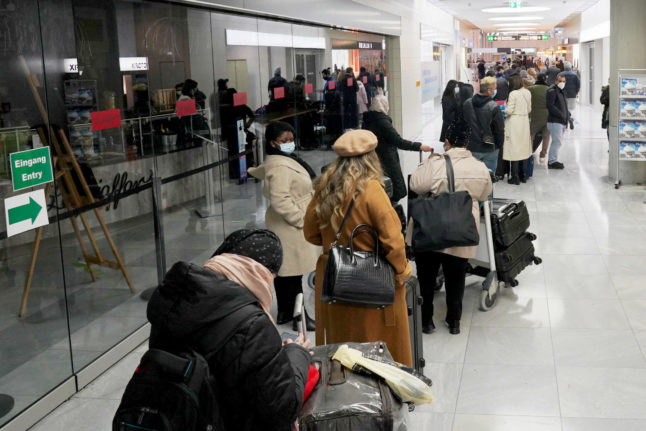“I think it's already in Germany,” said Drosten, who is the head of virology at the Charité hospital in Berlin.
The virus mutation has been spreading in England for several months now, he said, and it has found its way to several European countries.
“We now know, it is already in Italy, in Holland, in Belgium, in Denmark – even in Australia. Why shouldn't it be in Germany?”
But the virologist warned against people becoming too alarmed over the new mutation and how it spreads.
The new variant was first detected in September, reports the BBC.
Patrick Vallance, scientific advisor to the British government, said the new strain is spreading rapidly and is becoming the dominant strain of the virus in the south of England. By December, he said, it was already responsible for more than 60 per cent of infections in London.
READ ALSO: What you need to know about Germany's UK travel ban
With regards to the danger posed by the virus variant, Drosten said he was “anything but worried” at the moment. He said there was still not enough verified information about the strain.
“I am not that concerned at the moment,” Drosten said. “There may be scientific surprises. But I am anything but worried.”
He called the current approach of banning travel from the UK appropriate due to the uncertainty. When there's more information, he said, politicians could then react accordingly.
Drosten also expressed doubts about the estimates that the new variant of the virus is 70 percent more transmissible than the previously known form.
Much of what is said and written about the new virus variant has not yet been scientifically confirmed, he said. Drosten added that this would need to be verified by British scientists.
It would take a few days until “clear messages” were available from the researchers, Drosten said.
 German virologist Christian Drosten. Photo: DPA
German virologist Christian Drosten. Photo: DPA
Virus strain 'will likely not have impact on vaccine'
Looking at the south of England, where the new virus variant is currently spreading, Drosten asked: “Is the virus being boosted by a new wave in the region concerned, or is the virus responsible for creating this wave in the first place?”
That, he said, is an important question that cannot be answered easily.
READ ALSO: New Covid strain: UK passengers stranded at German airports
He referred to other countries where the variant had been detected and where there had been no direct, sharp increase.
Drosten stressed, however, that he did not want to “trivialise” the new virus variant.
Meanwhile, the virologist does not believe the mutation will have an impact on the effectiveness of vaccines. The change in the virus is not extensive enough for that, plus the vaccines are too broad in their effect, he said.
Vocabulary
Scaremongering – (die) Panikmache
Coronavirus variant – (die) Virusvariante
Clear messages – (die) eindeutige Botschaften
Not that concerned – nicht so sehr besorgt
We're aiming to help our readers improve their German by translating vocabulary from some of our news stories. Did you find this article useful? Let us know.



 Please whitelist us to continue reading.
Please whitelist us to continue reading.
Member comments